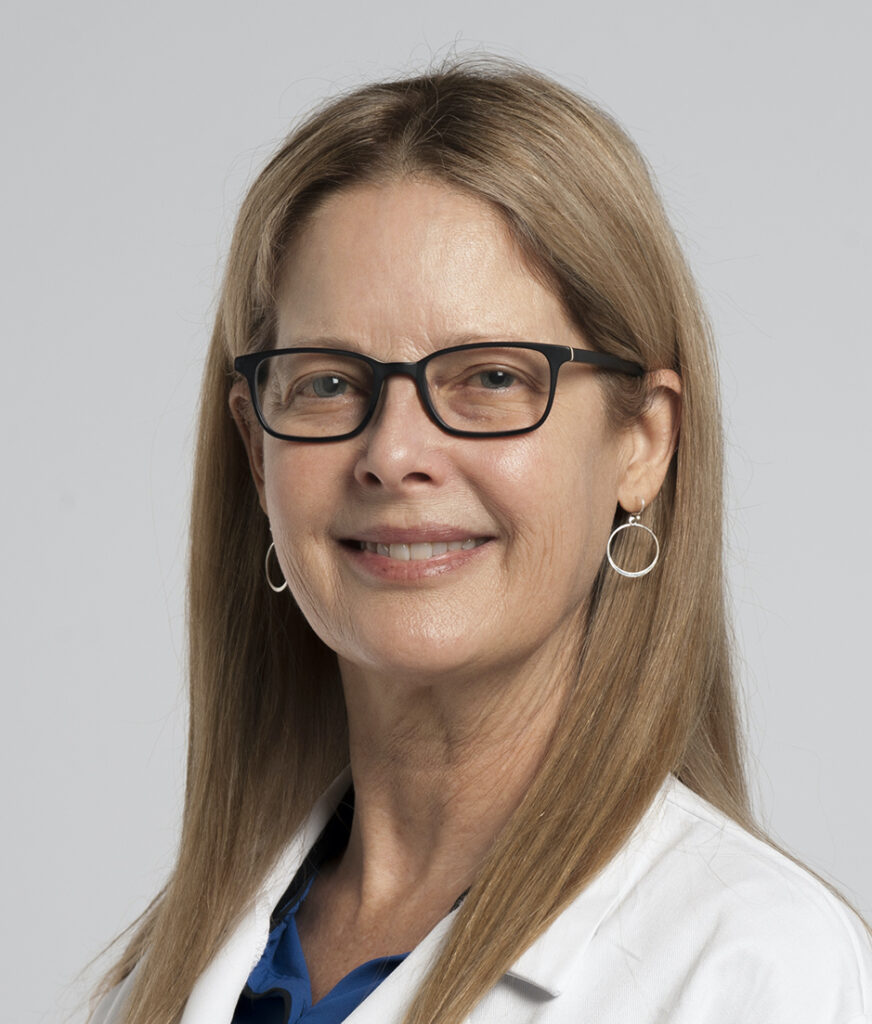
Biomarker Core Leader
Assistant Professor, Molecular Medicine
Cleveland Clinic Lerner College of Medicine, Case Western Reserve University
Biomarker Core
Tell me about yourself and your role at the Cleveland Alzheimer’s Disease Research Center (CADRC).
My lab is focused on Alzheimer’s Disease Biomarker Discovery. I use clinical and experimental approaches to demonstrate the feasibility of genetic and epigenetic factors underlying soluble protein expression (in biofluids) as either potential early stage drug targets or early biomarkers of disease risk, progression and therapeutic outcomes. As a post-doc under Jerry Schellenberg, Elaine Peskind and Chang-En Yu, I wanted to understand how regulatory region genetic variation in Alzheimer’s genes might impact expression of the critical Alzheimer’s proteins. Much of my early dementia work involved deconstructing disease heterogeneity using existing Alzheimer’s disease biomarkers, such as Aβ, tau and APOE.
What do you see as your core’s main activities and goals?
We facilitate the study of the relationship between basic AD/ADRD-related biomarkers and inflammation-related biomarkers during disease progression in understudied and heterogeneous populations. The goals of the CARDC biomarker core are to leverage and expand our large existing LRCBH-biobank, provides basic biomarker characterization, provide basic genetic informationand to distribute biospecimens and corresponding data.
What is the focus of your research currently, and where do you see your work going in the next two-five years?
My research is focused on how the immune response might play a role in dementia and characterizing a biomarker signature of this immune response. We now know that there is significant heterogeneity and multifactorial pathology that is not necessarily discernable by current traditional biomarkers. My goal is to characterize the genetics and epigenetics of adult neurodegenerative disorder biomarkers to help support precision medicine disease management in the dementia clinic. A decade’s long continuum of progressive pathological changes offers the unique opportunity to treat the neurodegenerative disease early before cognitive decline. Genetic evidence strongly suggests there can be other heterogeneous pathological features, such as inflammation, but a reliable blood-based biomarker of inflammation in Alzheimer’s disease remains elusive. My research goal is to identify specific biomarker signatures that tease apart the heterogeneous nature of early pre-symptomatic disease for tracking disease progression, therapeutically targeting the disease and monitoring treatment effectiveness.
How do you see research in brain health/AD/dementia evolving in the next 2-5 years?
I think in the coming 2-5 years we will know more about adult neurodegenerative disorder biomarkers which will help support precision medicine disease management in the dementia clinic. For example, we may have a blood-based Aβ and tau biomarker screening tool for the primary care clinic that will bring more early stage patients to the dementia clinic. This will allow us to better characterize the early stages of dementia progression.
Do you have any suggestion or recommendations for students or young researchers who wish to get more involved in brain health research?
For early stage researchers interested in brain research, we have an excellent program here in Cleveland now with the CADRC. It brings together multiple neurodegenerative disease researchers to choose from to do their training. With the development of the CADRC biomarker core there will be human biospecimens to help answer critical questions in dementia research. I would suggest going to the CADRC website to find the Translational Therapeutics Core (TTC) and Research Education Component (REC) core links to contact them for advice on how to select a lab for training in the Cleveland area. There are excellent neurodegenerative disease focused labs at both the Cleveland Clinic Lerner Research Institute and Case Western University.
